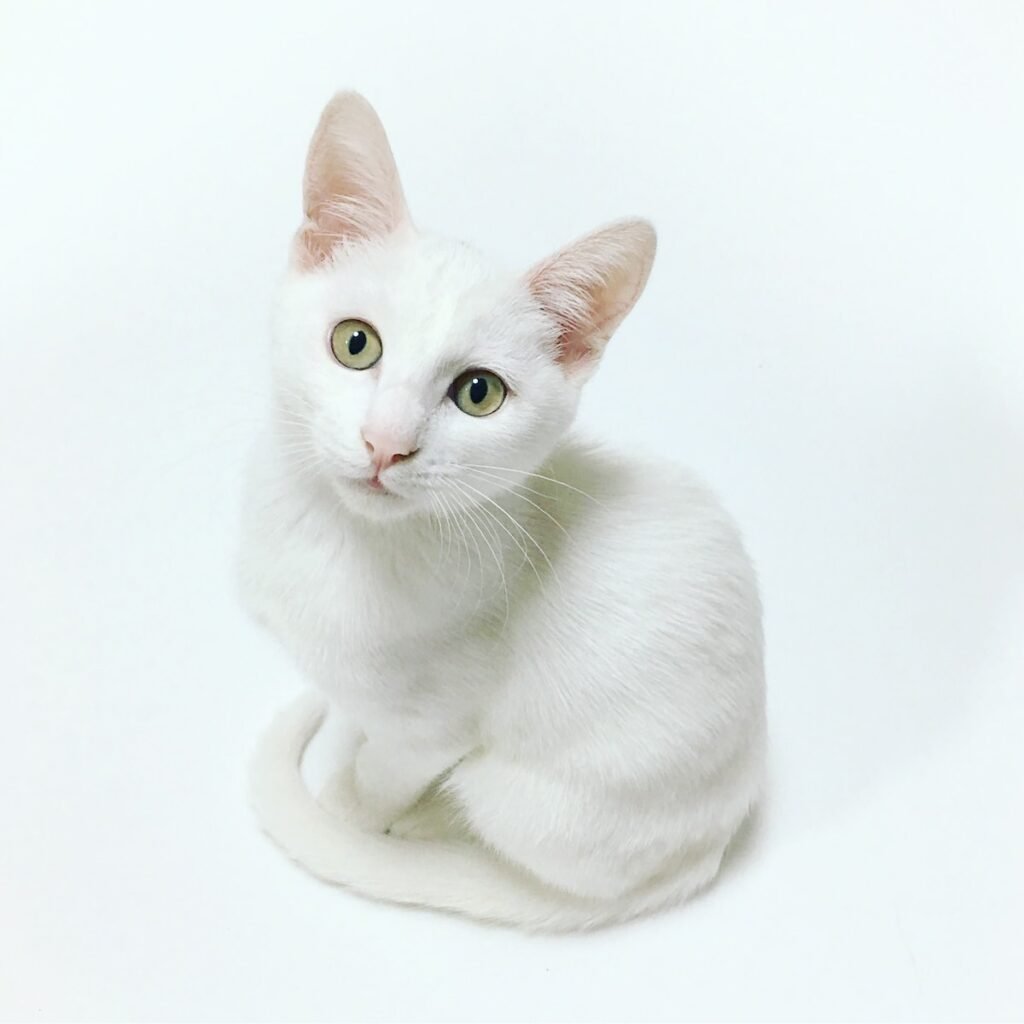What vaccinations does your cat need for optimal health?
Calling all cat lovers! As a pet owner, you want nothing but the best for your furry feline. And one of the most important things you can do to ensure their optimal health and wellbeing is to make sure they are up-to-date on their vaccinations.
But with so many different types of vaccines available, how do you know which ones your cat really needs? In this blog post, we’ll break down everything you need to know about vaccinating your cat – from core shots to non-core options – so that you can keep your kitty happy and healthy for years to come.
The Different Types of Vaccinations Your Cat Needs

Your cat needs a series of vaccinations to stay healthy. While some cats may get by without any, others will need more specific vaccinations depending on their geographical location or lifestyle.
Below are the five most common types of vaccinations your cat needs:
Feline leukemia (FeLV) vaccination
Feline panleukopenia virus vaccine
Feline rhinotracheitis vaccine
Feline calicivirus vaccine
Feline pneumonitis vaccine
What to Watch For When Choosing a Vaccine for Your Cat
When it comes to choosing the best vaccine for your cat, there are a few things you should keep in mind.
First and foremost, make sure to get all of your cat’s required vaccinations – most important are rabies, distemper (a virus that can cause pneumonia and other serious health problems), and feline leukemia virus (feline immunodeficiency virus). These three diseases are common in cats, so it’s essential to have them vaccinated against them as early as possible in their lives.
Then consider which vaccines might be best for your cat. The Centers for Disease Control and Prevention (CDC) recommends against giving Bordetella bacteria vaccines to indoor cats due to concerns about potential toxicity; however, these same vaccines may be okay for outdoor cats.
There is also a vaccine available for cats only against leptospirosis – an uncommon but potentially deadly disease caused by fleas that can infect animals from both domestic and wild species. Talk with your veterinarian about what vaccines might be best for your furry friend.
Remember that not all vaccines are created equal. Some brands of kitten or adult cat vaccines may be more effective than others; check with your veterinarian to see which types of shots are recommended for your cat. And lastly – always keep a close eye on your cat while they’re receiving any vaccine, as some may cause minor side effects such as fever or vomiting.
The Basics of Vaccination Protocols
Some cats may not need all of the commonly recommended vaccinations, but all cats should be vaccinated against rabies and feline leukemia. In addition to acquiring regular vaccines, your cat may also benefit from specific preventative vaccines depending on its lifestyle and environment. Discuss the specifics of your cat’s vaccination protocol with your veterinarian to ensure that you are providing optimal health for your pet.
How Often should My Cat Be vaccinated?

In most cases, your cat should be vaccinated annually. Some vaccinations require initial vaccination followed by boosters, while others can be given in a single visit. Your cat’s veterinarian will help you determine which vaccinations are appropriate for your cat and when they should be given. A full list of the vaccinations your cat needs can be found on the Centers for Disease Control and Prevention website.
Injuries That Require Veterinary Care and Which Vaccines Will Help Prevent Them
There are a number of injuries thatrequire veterinary care and which vaccines will help preventthem. Certain vaccinations can alsohelp treat conditions that may occur as a resultof the injury. In some cases, thesecondary vaccine may be necessary, depending onthe type of injury.
Here are four common injuries and theirvaccines:
1) Fractures: Cats typically require an rabies vaccine if they have been bitten or scratchedby an animal that is known to carry rabies, such as other catsor raccoons. A feline leukemia virus (FeLV) vaccination issurely beneficial for cats with fractures who mightacquirebloodborne pathogens from the patient or surroundings.
2) Trauma: Many different types of traumapets require Vaccinia immunization as part of their overall health maintenance program; thisincludes falls, car accidents, being hit by a ball or falling outof a window. felvids should also be administered tocats who suffer traumatic events such as boarding aplane, surgery or exposure to toxins.
3) Infections: Infection with antibiotic-resistant strains oftuberculosis (TB), Staphylococcus aureus and Escherichia coli canresult from nursing an injured cat or from coming in contactwith infected blood and tissues. Vaccination againststreptococcal pneumonia – which often accompanies infectious bodily fluids – andfeline immunodeficiency virus (FIV) are good hygienesteps any time a cat is dealing with an illness.
4) Burn Damage: Cats who suffer thermal burnsmay require therapeutic radiation and/or a rabies vaccine if the burn isanesthetized.administering the rabies vaccine at least two weeks prior totherapeutic radiation is recommended to ensure optimal protection.
What is a vaccine?
A vaccine is a medication that helps protect people and animals from disease. Vaccines are made from a “killed” or weakened form of a virus, bacteria, or protozoan. The body mounts an immune response to the contaminants in the vaccine, and the person receives immunity against the disease for which the vaccine was created. This means if you contract the disease after being vaccinated, your body will be able to fight it off better than if you had not received the vaccine at all.
There are many vaccines out there and scientists are always creating new ones. The best way to stay up-to-date on the newest vaccines is to visit your local health center, or go to the website of the Centers for Disease Control and Prevention (CDC), which maintains a comprehensive list of all currently licensed and available vaccine types.
Types of vaccines
Types of vaccines:
There are different types of vaccines, each with its own benefits and drawbacks. Your cat may need one or more types of vaccine depending on their lifestyle and location. This is determined by your veterinarian.
The most common type of vaccine given to cats is a rabies vaccine. Cats who live in areas where rabies is present (such as New York City) must have a rabies vaccine every two years. Other vaccines you may want to consider include feline distemper (FDA approved for use in cats over 6 months of age), panleukopenia (an antigen used in feline leukemia virus vaccine), and bordetella (a respiratory infection) vaccines.[2]
What vaccinations does your cat need?
Cats need a number of vaccinations, depending on their age and lifestyle. A full list of vaccinations for cats can be found here. Some of the most common vaccines include Bordetella (a respiratory infection), Feline leukemia virus (FLV; a virus that causes cancer in cats), and Leukemia vaccine (LVM).
It is important to keep up with your cat’s vaccine schedule to make sure they are protected from illnesses that could lead to serious health complications or death.
Some specific vaccines that cats may need depending on their lifestyle include:
Conclusion
As a responsible pet owner, it is your responsibility to make sure your cat has all the vaccinations needed for optimal health. Many illnesses are easily prevented through vaccination, and if not treated early can lead to serious complications and even death in cats.
Make sure you have your cat vaccinated against: Feline panleukopenia (FVRCP), feline leukemia virus type 1 (FeLV-1), rabies, calicivirus (CVRS), herpes zoster virus (HZV) Type 2 – Oral, Bordetella bronchiseptica pertussis vaccine,, core interferon beta-2a & -2b, somatostatin receptors V1&2 immortalized cells for veterinary use., rhinotracheitis virus (RT) needle-free RT dispersion/vaccine kit.






